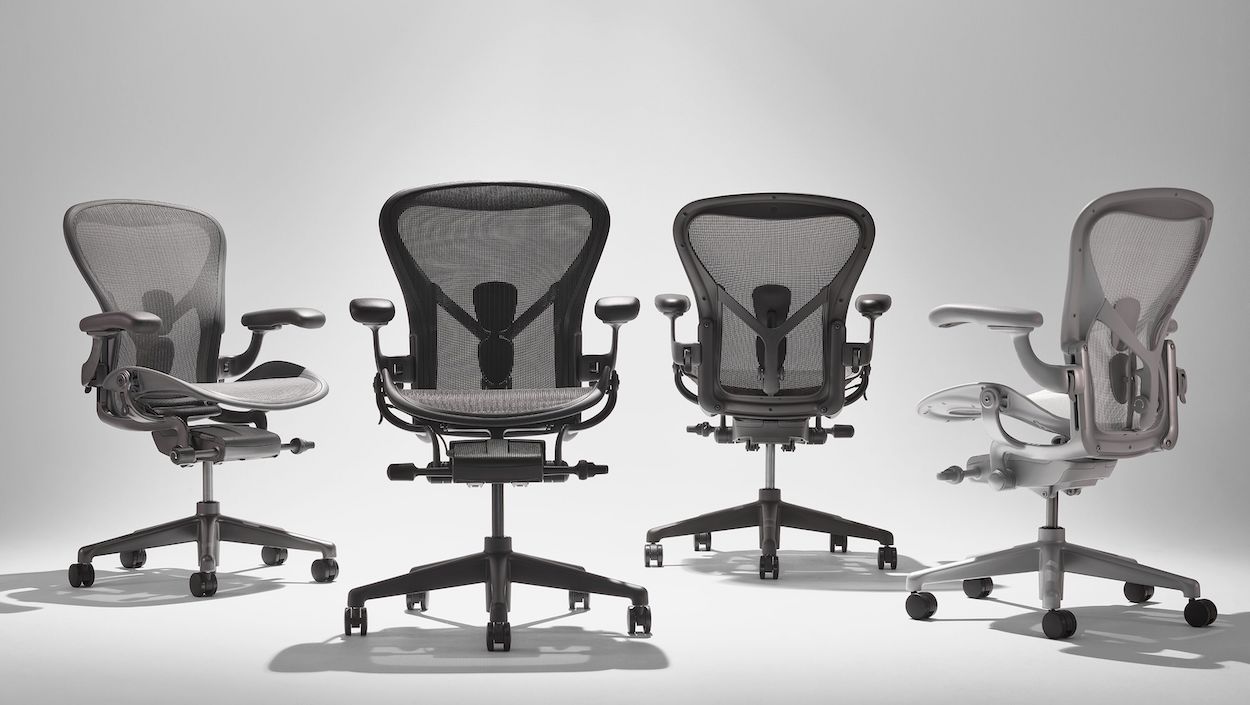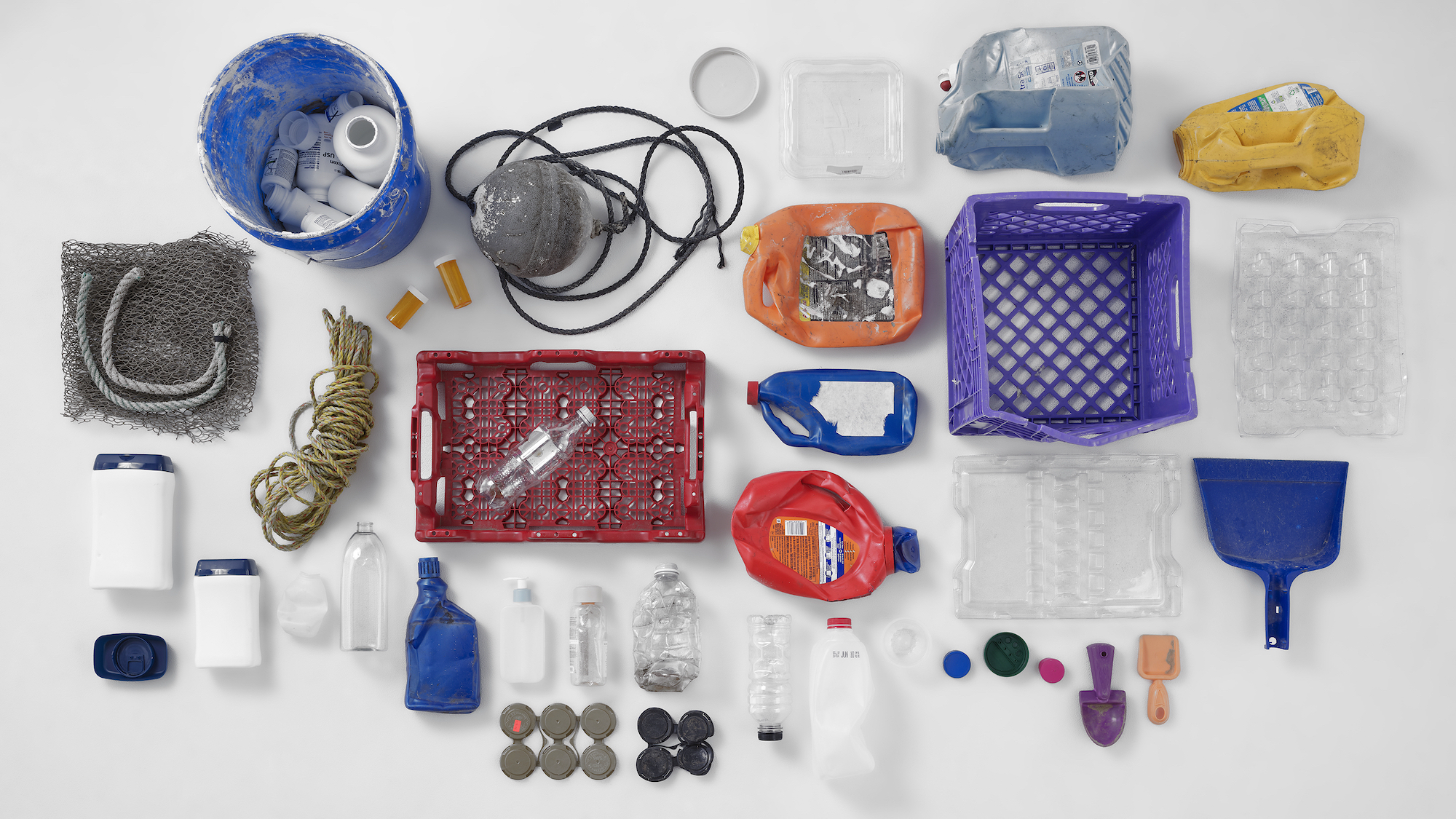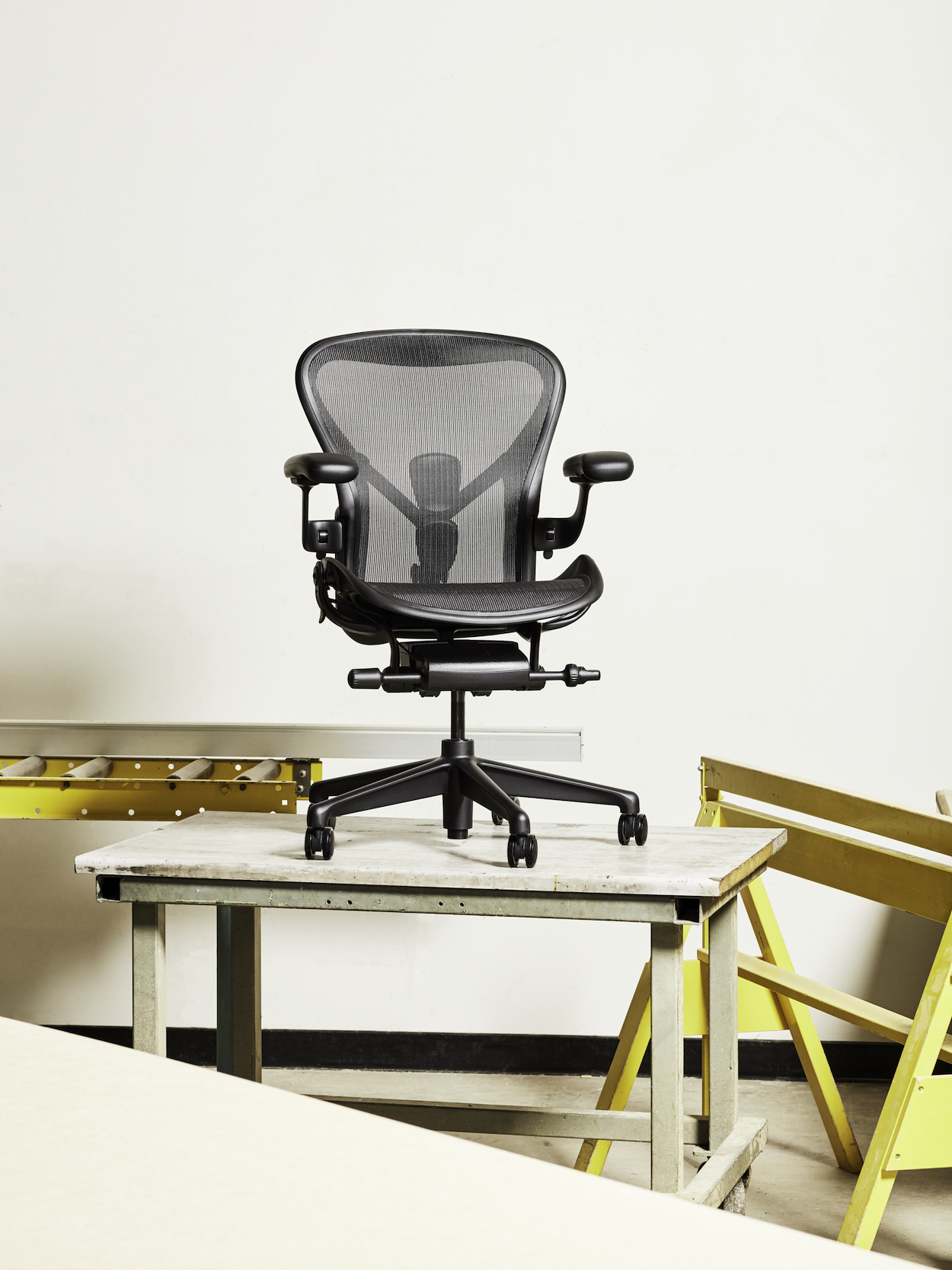Every year, eight million tons of plastic enter the ocean—an amount that’s roughly equivalent to one garbage truck dumping a load every minute. The global plastic waste crisis is well-documented and has only intensified in recent years. Production has far outpaced mitigation efforts, and only nine percent of all plastic waste has been recycled; a staggering 79 percent has accumulated in landfills and waterways. If we fail to act, scientists predict it may one day serve as a geological indicator of the Anthropocene era.
To help mitigate the crisis, Herman Miller will start producing each of its best-selling Aeron Chairs with up to 2.5 pounds of ocean-bound plastics—waste material that hasn’t yet found its way into the ocean and is technically classified as “mismanaged waste.” This detritus, which typically includes bottles, jugs, caps, and fishing gear, are unlikely to be collected and often found within 50 kilometers of a shoreline. When plastic waste builds up in coastal cities, suppliers will partner with local pickers to collect it. The material is then ground, washed, pelletized, and sold to manufacturers, who test and re-engineer it to incorporate into products. In Herman Miller’s case, the pellets will be melted down into a goopy material that gets fired into an injection mold.
Herman Miller estimates that the shift will divert more than 150 tons of plastic from the ocean annually, especially within vulnerable seaside communities across India and Indonesia. “On our current trajectory, we’re at risk of tripling the rate of new plastic entering the ocean every year,” says Dune Ives, CEO of environmental nonprofit Lonely Whale. “In bringing the Aeron Chair made with ocean-bound plastic to market, Herman Miller is not only proving the material’s commercial value, but showcasing the power of collective action in developing ocean-bound plastic supply chains.”
The updates are part of the furniture giant’s membership with NextWave Plastics, as well as a wide-ranging commitment increase the usage of ocean-bound plastics across its entire product portfolio by 2030. For now, the Aeron Chair proves an ideal starting point. Not only is Aeron by far Herman Miller’s top-selling seat, but innovation and sustainability is woven into its DNA. Designed by Bill Stumpf and Don Chadwick in 1994 and restored in 2016, Aeron first proved pioneering in materials and ergonomics without relying on the standard use of foam, fabric, or leather found in most office chairs at the time. It also became the company’s first product to receive the industry-leading Cradle to Cradle V3 Silver Level certification assessed on environmental and social performance.
Of course, Herman Miller isn’t the only company incorporating ocean-bound plastics into its products. Adidas notably began experimenting with reclaimed marine refuse in its high-performance Parley running shoes, which debuted on Earth Day in 2015. The prototype sneaker featured an upper made of yarns and filaments reclaimed and recycled from ocean waste and illegal deep-sea gillnets, which were once used in poaching operations that exploited vulnerable tooth fish species in the southern Ocean. Adidas’s experiment proved successful—this year, the athletic brand is expected to sell up to 17 million pairs of kicks made with ocean-bound plastics. If past is prologue, Herman Miller’s idea could easily scale.
To kick off the announcement, Herman Miller is debuting a new Aeron colorway called Onyx Ultra Matte—an ultra-black alternative to the already available lighter shades of Graphite, Carbon, and Mineral. Onyx will also contain 2.5 pounds of ocean-bound plastic, the highest amount of all the colorways. “We’re proud of the progress we’ve already made with packaging and textiles,” says Gabe Wing, Herman Miller’s director of sustainability, “and are eager to continue doing our part in preventing harmful plastic from reaching our oceans by adding to the iconic Aeron Chair.”



